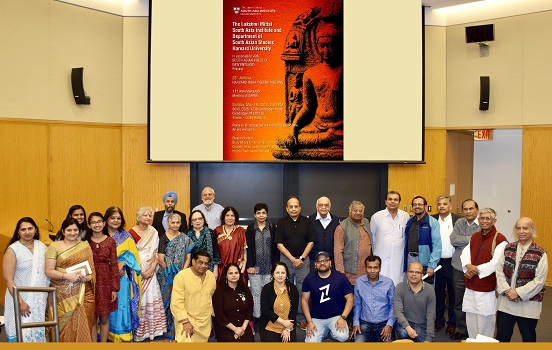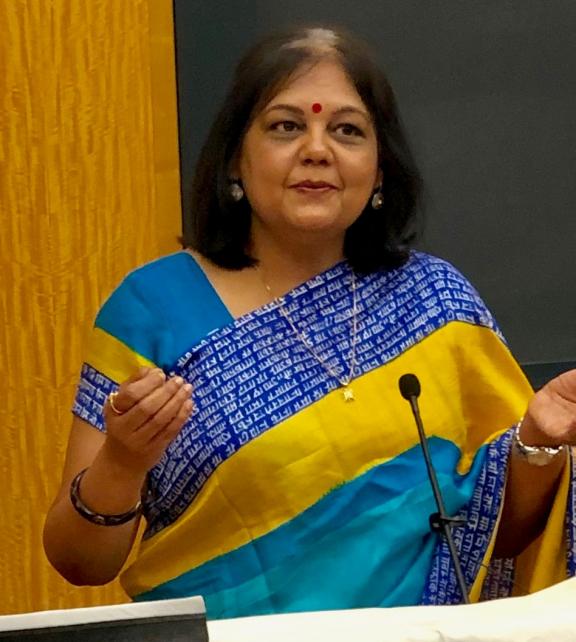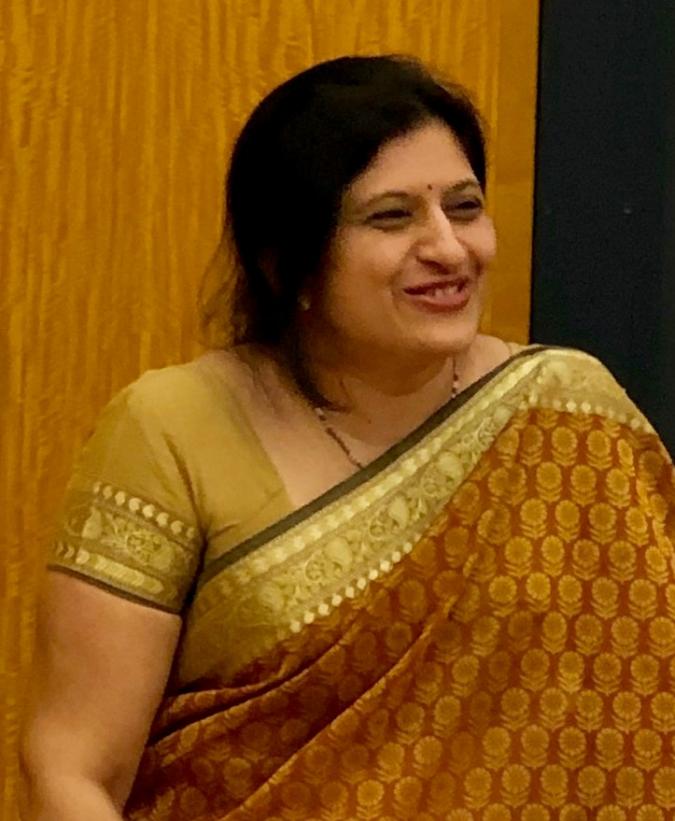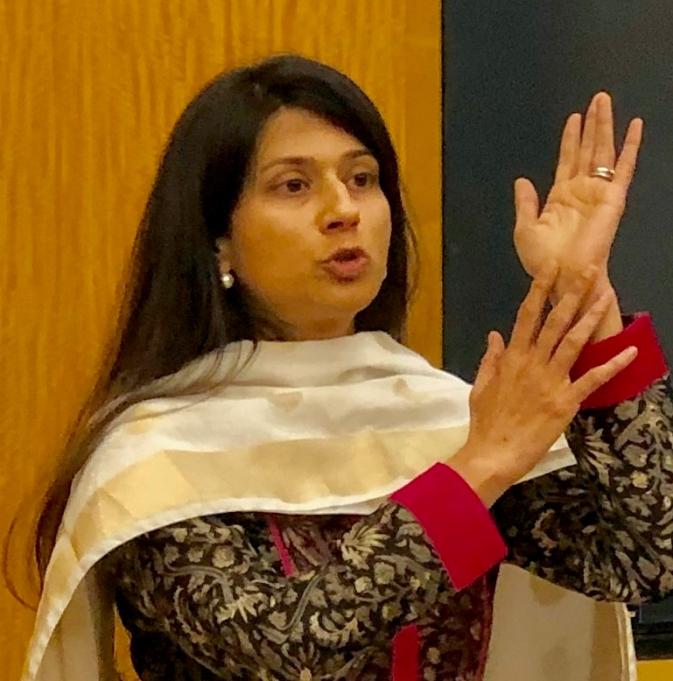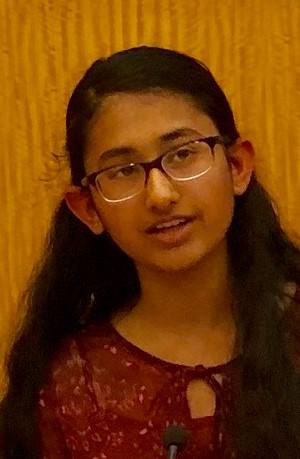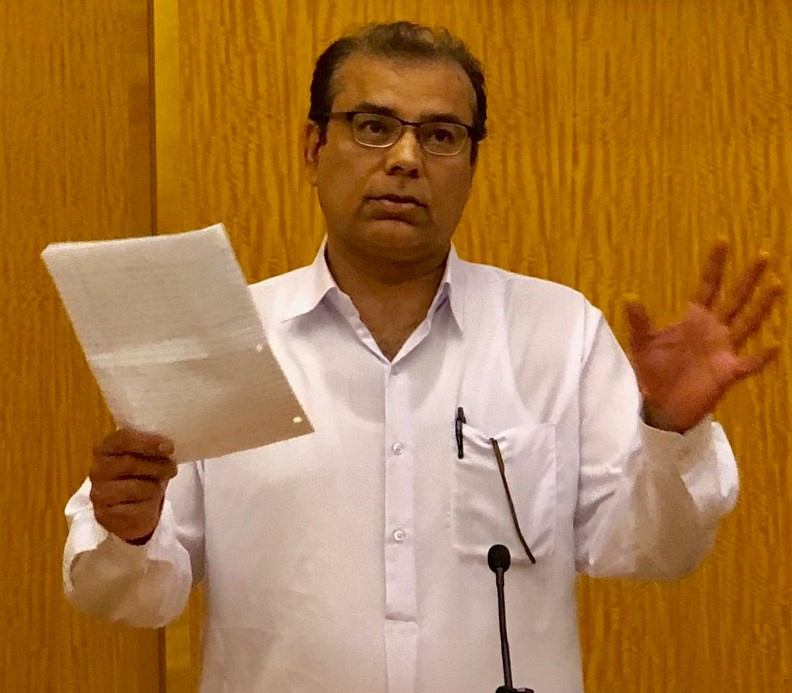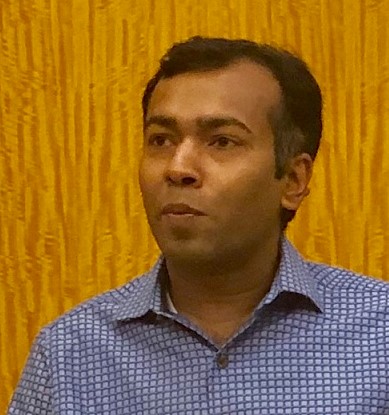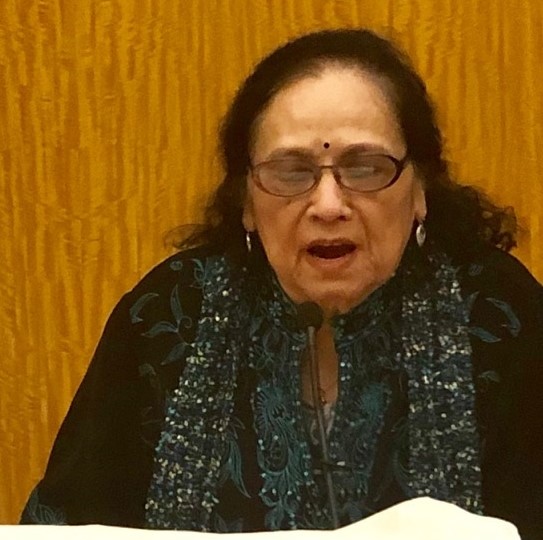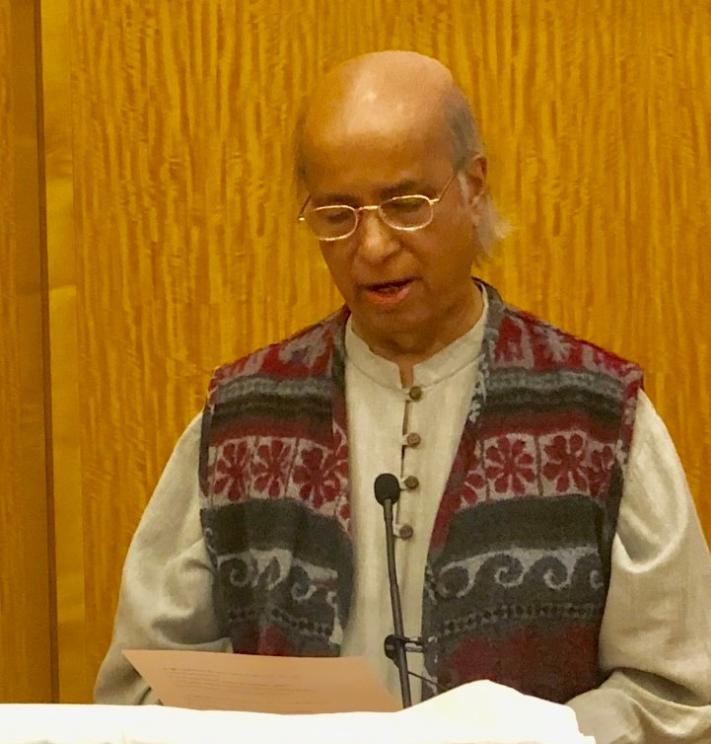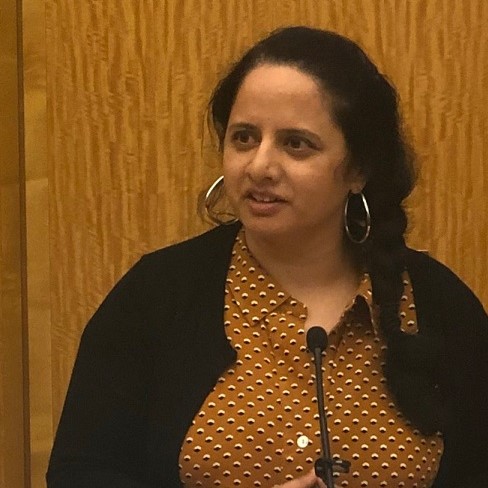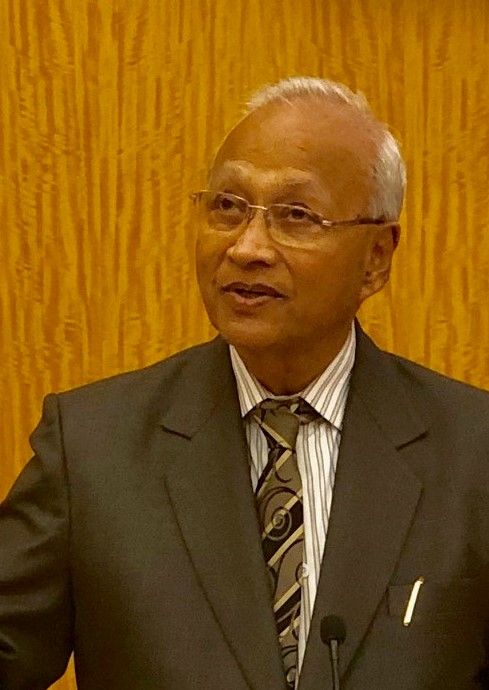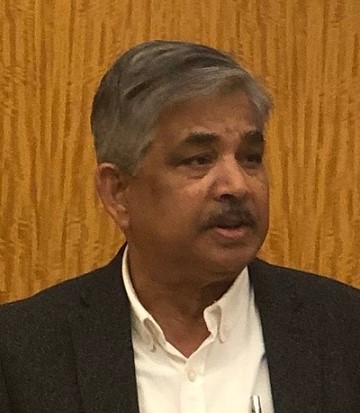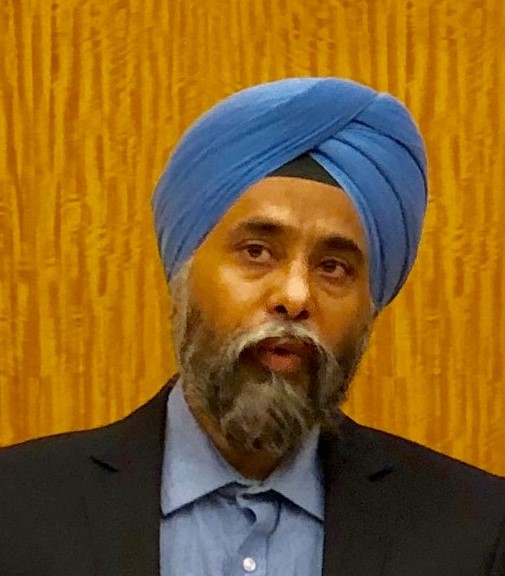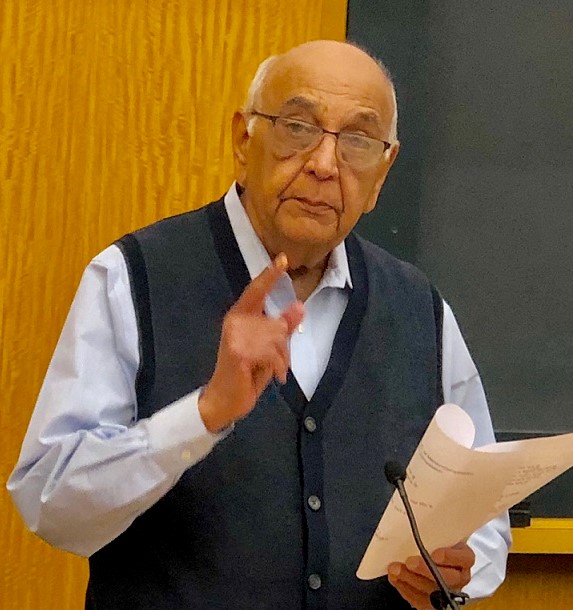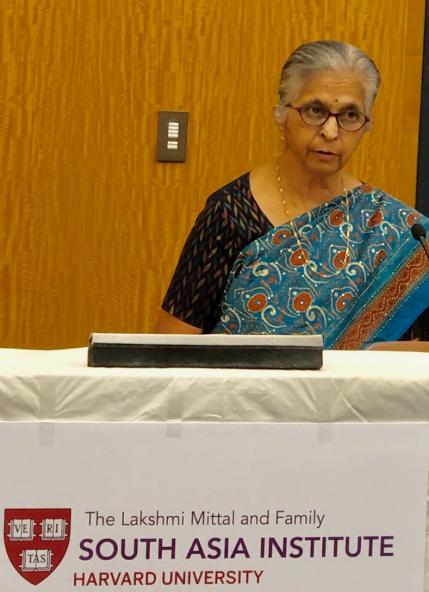Contribute
| Compassion – A Touch Of Mother! |
Amandeep Singh
05/29/2019
Compassion – A Touch of Mother! Report of the Annual India Poetry Reading at Harvard University Compassion is a state of mind. - Buddha Compassion (or Karuna करà¥à¤£à¤¾ in Hindi and other South Asian Languages) is hard to describe as an object, it is an abstract feeling. We are not born with it but it is something we develop through time. Young Siddhartha felt it when he saw the funeral procession for the very first time and empathize with the family of the deceased person, and it was the compassion that transcended him to Buddha. A young boy whose mother may have died remembered her how she was always there for him; how she loved him; how she cared for him - and now that she was gone, he cried and sang songs of pathos as he missed her - it is possible that was the time when compassion was discovered! Compassion is God and God is everywhere and in every living being. Being human would also mean to be compassionate. Compassion is a latent trait. On May 19, 2019, South Asian Poets of New England (SAPNE) assembled in South Asia Institute (SAI) Auditorium of Harvard, to recite poems on compassion. They reflected on the meaning and importance. Audience was treated to amazing poetry readings by the poets. The assembly was transfixed to a thoughtful journey into the avenues and alleys of compassion. In various South Asian languages Bengali, Oriya, Marathi, English, Gujarati, Hindi, Punjabi and Urdu, it was three hours of reflection, entertainment and literary beauty! To start the program, educationist Anagha Bhide recited the Marathi poem सà¥à¤– न गमे संसारी a poem by her late grandfather Sant Vinayak Vasudev Sathe. The poet surrenders to God and seeks guidance from the unending pain that his senses bring to him. Jayant Dave a Gujarati poet followed with the recitation of his poem હà«àª‚ માનવ છà«àª‚? "—Hun’ Manav Chhun’. The poet equated human to compassion by illustrating with simple mathematical equation if A=B and B=C then A=B; if human is God and God is compassion then being human is equal to compassion. Amandeep Singh in his Punjabi poem ਨਫ਼ਰਤ ਦੀ ਇੰਤਹਾ - Nafart di Inteha questioned why people hate so much that they are not afraid to kill others. He asked God for compassion and mercy. May He shower the rain of love to quench the rising hate in the World! Neena Wahi in her Hindi poem तरकà¥à¤•à¥€ और सà¥à¤µà¤¿à¤§à¤¾à¤à¤°à¤¾ जीवन - Tarakki aur suvidhabhara Jeevan reflected that advances in technology provided us comfortable life but has taken the true happiness away. R. Balachandra in his English poem My Dilemma expressed ambivalence to the meaning of compassion that while a little boy showed compassion towards injured baby bird, yet a grown-up man could callously disregard the plea of a homeless person. Mir Fazlul Karim in his Bengali poem আমাদের জায়ান - Amader Jayan remembered an eight year old brilliant boy of Bangladesh who was killed on Easter Sunday bombings in Sri Lanka. He had high hopes and dreams and wanted to make a difference in the world, alas, poor soul was lost to the senseless violence. Reena Tyagi in her Hindi poem जिंदगी - JindagI emphasized the need of compassion and kindness in life. Dr. Dinesh O Shah in his Gujarati poem માણસાઇના દીવા - Mansai naa Diva gave a scientists’ perspective to the theme of compassion. In his poem he described “like fireflies, we humans also have a light which when lit together could illuminate the entire universe.†Sunayana Kachroo in her Hindi/Urdu poem करà¥à¤£à¤¾ की कहानी - Karuna ki Kahani told the story of compassion through Aruna’s story, a nurse who was brutally raped and was in a vegetative state for many years. Maya De a Bengali poet, in her poem সহানà§à¦à§‚তি - আছে? Sahanubhuti Acche? questioned if compassion indeed exists as there are so many poor and homeless people in the world, yet nobody helps alleviate their sufferings. Sajed Kamal witnessed the burning of Notre Dame in Paris, and in his English poem Chant de Notre Dame, he described the scene of compassion: how thousands of people watching the blaze engulfing the city’s iconic cathedral, started to chant and sing hymns. Rekha Upadhyay in her Gujarati poem યોગામૃત - Yogamrit stressed on the importance of Yoga to balance the life and uplift it to the higher state to be one with the God. Yoga has the five elements that can rejuvenate human mind, body and soul. Amit Khare in his Hindi poem सहानà¥à¤à¥‚ति है मà¥à¤à¥‡ - Sahanubhuti hai Mujhe empathized with the good old times when everything was simple and loveable sans faux veneers of modernization. Bijoy Misra in his oDiA poem କରàଣାମàŸà€ ମା’ - Karunamayi Maa explored the identification of karuna (compassion) in human civilization. Karuna is something that is learned and experienced. It is feminine in nature, possibly arises after a woman becomes a mother. A young man misses his mother after her demise and through the process of grief discovered that it is the compassion of the universe that sustained him in life. Preetapal Singh in his humorous Hindi/Punjabi poem बाबा - Baba dreamt of becoming a holy saint who enjoyed all amenities of life without doing anything but thriving by showing sympathy, pity and concern for sufferings of others and making false promise to eliminate them. He claimed that this was the case in India and some other parts of the world where so-called religious Gurus exploit people’s sufferings. Alok De in his Bengali poem আমাদের মানব সমাজ - Amader Manab Samaj elucidated the state of modern human society. Pranali Ashara - a High School sophomore eloquently recited her English poem titled Freedom. She described that compassion has the ability to help others break free from their fears and embrace their dreams. Poppy Awasthi-Charnalia in her Hindi poem मेरी पूजा - Meri Puja talked about compassion for oneself. If we have compassion for ourselves, only then we can feel it for others. Maneesh Srivastava in a follow up Hindi poem दया और करà¥à¤£à¤¾ - DayA aur karuNA tried to express that kindness is not compassion. He imagined the feelings of an executioner who feels compassion for the prisoner on the brink of the latter’s death. Geetha Patil in her English poem Compassion described how most of us value compassion as an important element in our own lives as well as in our society. Compassion is not just a word but a way to bring light to the darkness of sufferings and pain. Rahul Ray in his Bengali poem পà§à¦²à¦¬à¦¾à¦®à¦¾à¦° পর Pulwamar par recalled attacks on the caravan of Indian Army in Kashmir. Motherland cries when terrorists blow themselves up and kill scores of people esp. for those who protects her. Who should I cry for, whom should I show compassion Whom should I hate with blind rage? They are sons and daughters of the soil Children of our motherland. Sejal Kothari in her Gujarat poemi લીફà«àªŸ- Lyft described the experience of observing and feeling compassion for an old man she sees in the elevator every day, who often had fits of rage. People despised him and were afraid to go near him! Dhruti Ashara in her English poem Daily Affair recited the poem that emanated from the discussion with her students about karuna (compassion), a virtue one needs to develop. Just to feel compassion is not enough, one has to act on it and do something to make a difference. Prem Nagar in his Hindi poem करà¥à¤£à¤¾ है वरà¥à¤£à¤¾ - KaruNA hai VaruNA depicted that we are products of compassion of this Earth where evolution of organisms and humans took stable shape. Compassion is the biological basis of our mind, and serves as vital social function - a cognitive empathy is learnt to understand others’ emotional state to process emotions and behavior. Chandu Shah recited his poem લાઇફની ગાડી - Life ni Gaadi or Wheels of life. The poem depicted the life of different classes in the society using metaphors of different wheels and connecting all human beings as dreamers - one dream ends, a new dream forms, which keeps the wheels of life rolling forever. Chanchala Priyadarshini in her Hindi poem पंचामृत - Panchamrita described the five nectars of life, compassion being one of them. The concluding recitation was Parmit Singh’s Hindi poem गरीबोंकी सà¥à¤¨ ले ठदाता! - GarIbo’nki sun le e dAtA, an ode to God, a prayer, asking God to listen to the poor and end their sufferings. Dr Bijoy Misra, the convener thanked SAI and all participants. Annual India Poetry Meeting commenced in Harvard University 23 years ago. Lately, it is the annual assembly of poets of an organization South Asian Poets on New England (SAPNE). This was 11th anniversary meeting of SAPNE. He alluded to the great tradition of poetry in India starting from the Ramayana of Valmiki and the massive analysis of words and metaphors. He appealed to all to live up to the great tradition. The next SAPNE meeting will be on the folk poetry from South Asia to be scheduled on August 11, 2019. The participants were hosted to a reception and did engage in further discussion on poetry and literature. Questions on SAPNE can be directed to Dr Bijoy Misra bmisra@fas.harvard.edu or Mr. Chandu Shah bostonwale@gmail.com SAPNE https://www.sapne.boston is a part of India Discovery Center https://www.indiadiscoverycenter.org.
You may also access this article through our web-site http://www.lokvani.com/
